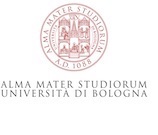CONFRONTING CONTEMPORARY CAPITALISM:
|
 |
|
Over the last few years several critical scholars have underscored the extractive dimension of contemporary capitalism. From Latin American discussions on so-called “neo-extractivism” to Saskia Sassen’s emphasis on the extractive nature of finance, to make just two important examples, “extraction” has entered the language of critical theory. David Harvey’s work on accumulation by dispossession has been an important point of reference in these debates, to which Sandro Mezzadra’s and Brett Neilson’s analyses of the operations of contemporary capital at the intersection between finance, logistics, and extraction have also made relevant contributions. The critical dialogue will take stock of this recent twist in debates surrounding contemporary capitalism. It will ask important questions regarding the relation between extraction “writ large” and other aspects of contemporary capitalism, and it will focus on the distinction and/or intertwining of dispossession and exploitation as crucial angle for its critique. The perspectives for a new radical politics capable to effectively confront capitalism in its current shape will build the backdrop of the whole discussion. |

David Harvey is a leading theorist in the field of urban studies. He earned his Ph.D. from Cambridge University and was formerly professor of geography at Johns Hopkins, a Miliband Fellow at the London School of Economics, and Halford Mackinder Professor of Geography at Oxford. His reflections on the importance of space and place (and more recently “nature”) have attracted considerable attention across the humanities and social sciences. Harvey is a prolific writer. His highly influential books include Rebel Cities: From the Right to the City to the Urban Revolution (2012); A Companion to Marx’s Capital (2013); Social Justice and the City (2009);A Brief History of Neoliberalism (2005); The New Imperialism (2005);Paris, Capital of Modernity (2005); Limits to Capital (rev. ed, 2007);Spaces of Capital: Towards a Critical Geography (2001); Spaces of Hope(2000); Justice, Nature, and the Geography of Difference (1997); The Condition of Postmodernity (1991); and The Urbanization of Capital(1985). His numerous awards include the Outstanding Contributor Award of the Association of American Geographers and the 2002 Centenary Medal of the Royal Scottish Geographical Society for his “outstanding contribution to the field of geographical enquiry and to anthropology.” He holds honorary degrees from three British universities— Bristol, Goldsmith College (London), and Kent—as well as the universities of Buenos Aires, Roskilde (Denmark), and Uppsala (Sweden), and Ohio State University |
|
|




 Sandro Mezzadra works as an Associate Professor of Political Theory at the University of Bologna, where he teaches postcolonial studies and contemporary political theory. He has published widely on the areas of migration, postcolonial theory, contemporary capitalism, Italian operaismo and autonomist Marxism. He recently completed a book with Brett Neilson, Border as method, or, the multiplication of labor (2013, Duke University Press). His writings have been translated into ten languages: Italian, French, German, Spanish, Finnish, Greek, Slovenian, Portuguese, Chinese and Japanese. He is currently "visiting research fellow" at the Berliner Institut für empirische Integrations- und Migrationsforschung (BIM), Humboldt Universität zu Berlin and a partner researcher on two ARC Discovery projects based at Western Sydney University ("Logistics as Global Governance: Labour, Software and Infrastructure along the New Silk Road" and "Data Centres and the Governance of Labour and Territory").
Sandro Mezzadra works as an Associate Professor of Political Theory at the University of Bologna, where he teaches postcolonial studies and contemporary political theory. He has published widely on the areas of migration, postcolonial theory, contemporary capitalism, Italian operaismo and autonomist Marxism. He recently completed a book with Brett Neilson, Border as method, or, the multiplication of labor (2013, Duke University Press). His writings have been translated into ten languages: Italian, French, German, Spanish, Finnish, Greek, Slovenian, Portuguese, Chinese and Japanese. He is currently "visiting research fellow" at the Berliner Institut für empirische Integrations- und Migrationsforschung (BIM), Humboldt Universität zu Berlin and a partner researcher on two ARC Discovery projects based at Western Sydney University ("Logistics as Global Governance: Labour, Software and Infrastructure along the New Silk Road" and "Data Centres and the Governance of Labour and Territory").